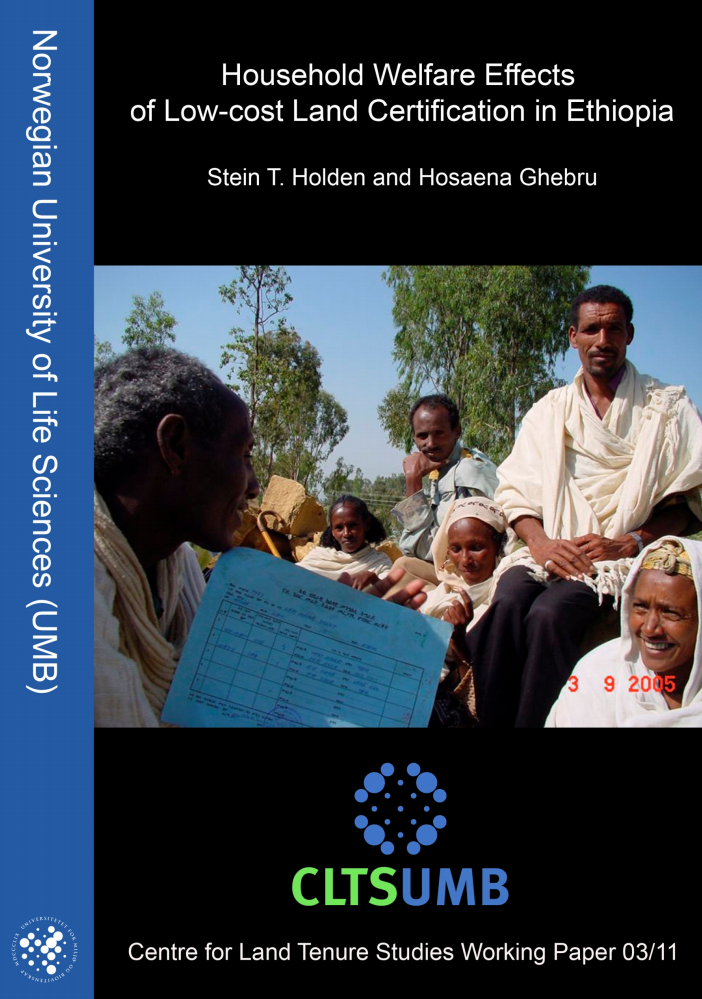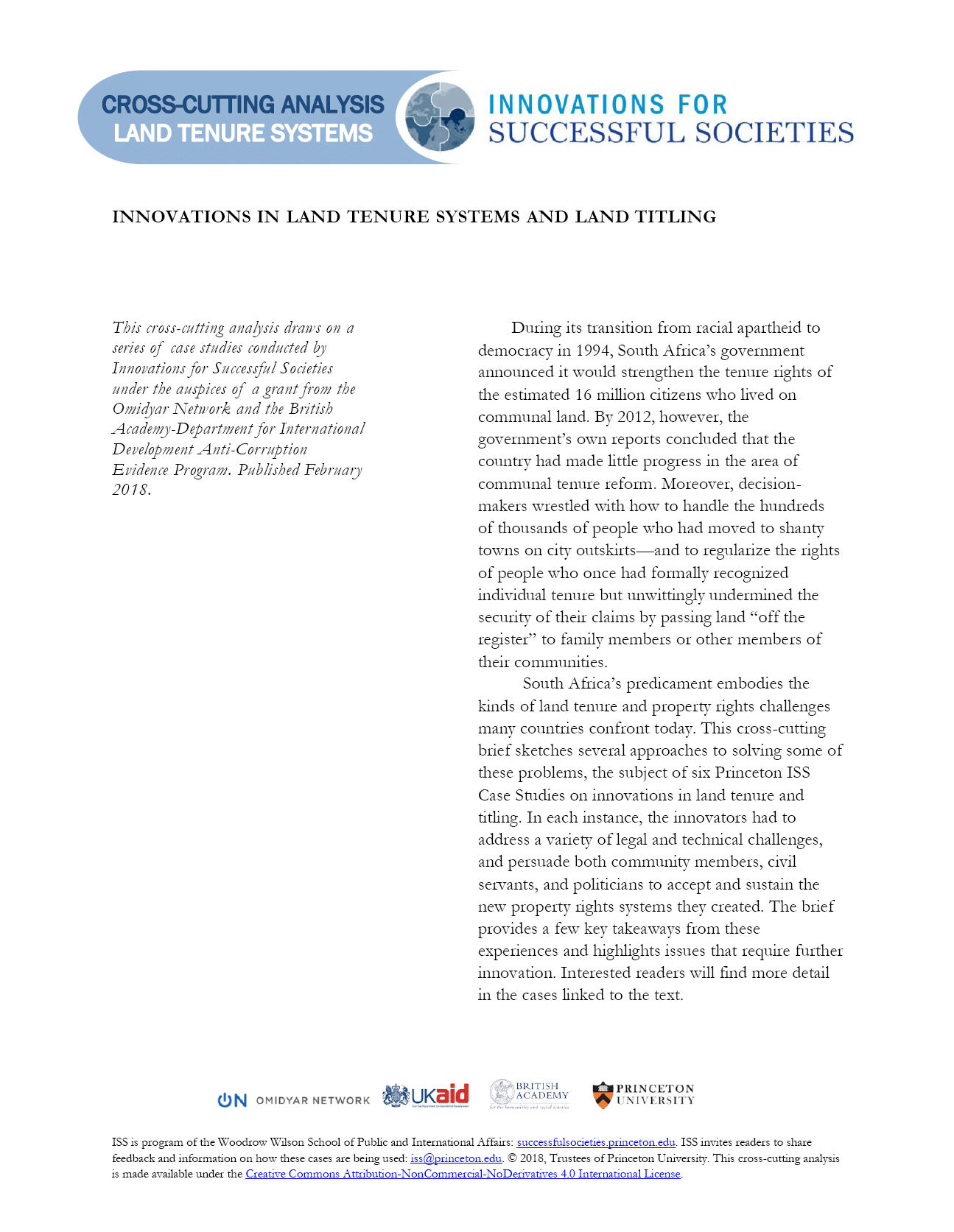A tale of two villages: An investigation of conservation-driven land tenure reform in a Cambodian Protection Forest
In this paper, we present an analysis of the change in household land use following a conservation-driven process of indigenous land titling reform in a Cambodian protected area. In each of the two study villages, we investigated how household land use had changed and the extent of compliance with both legal boundaries of titled areas and community regulations created to govern land use within these areas. A comparison of current household land holdings in each village with those at the start of the tenure reform process indicated a significant increase in household land holdings.




